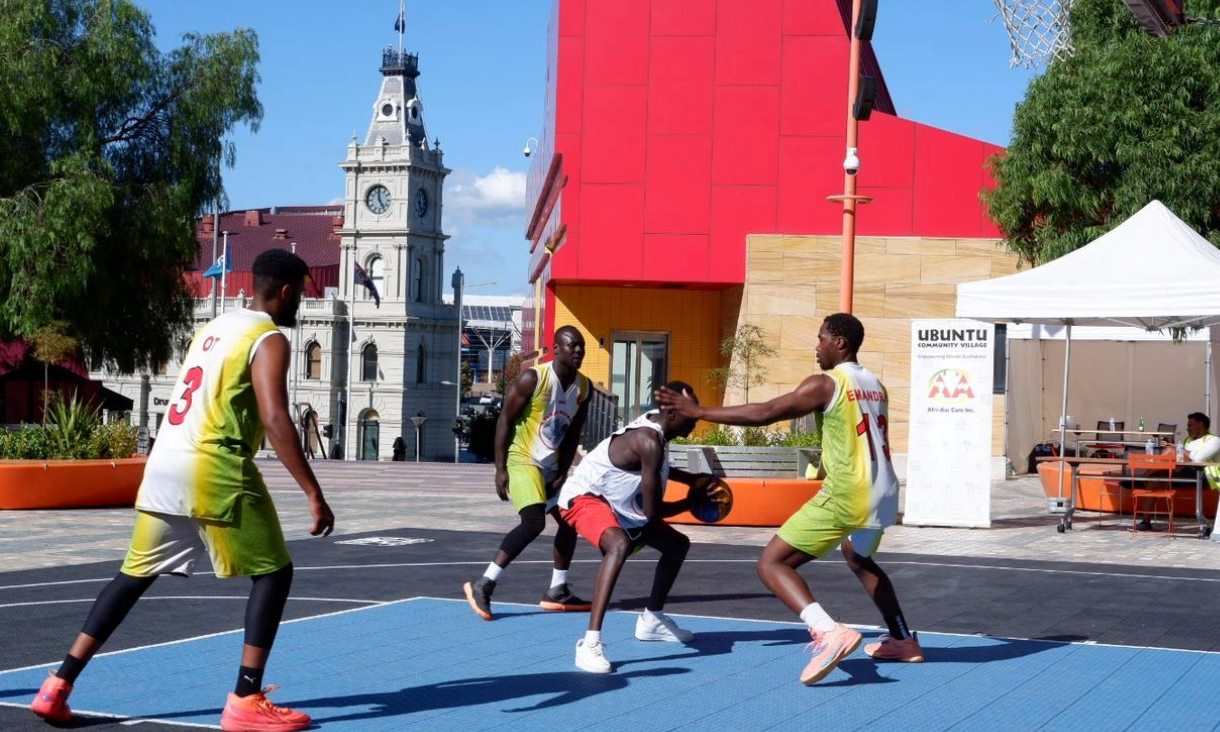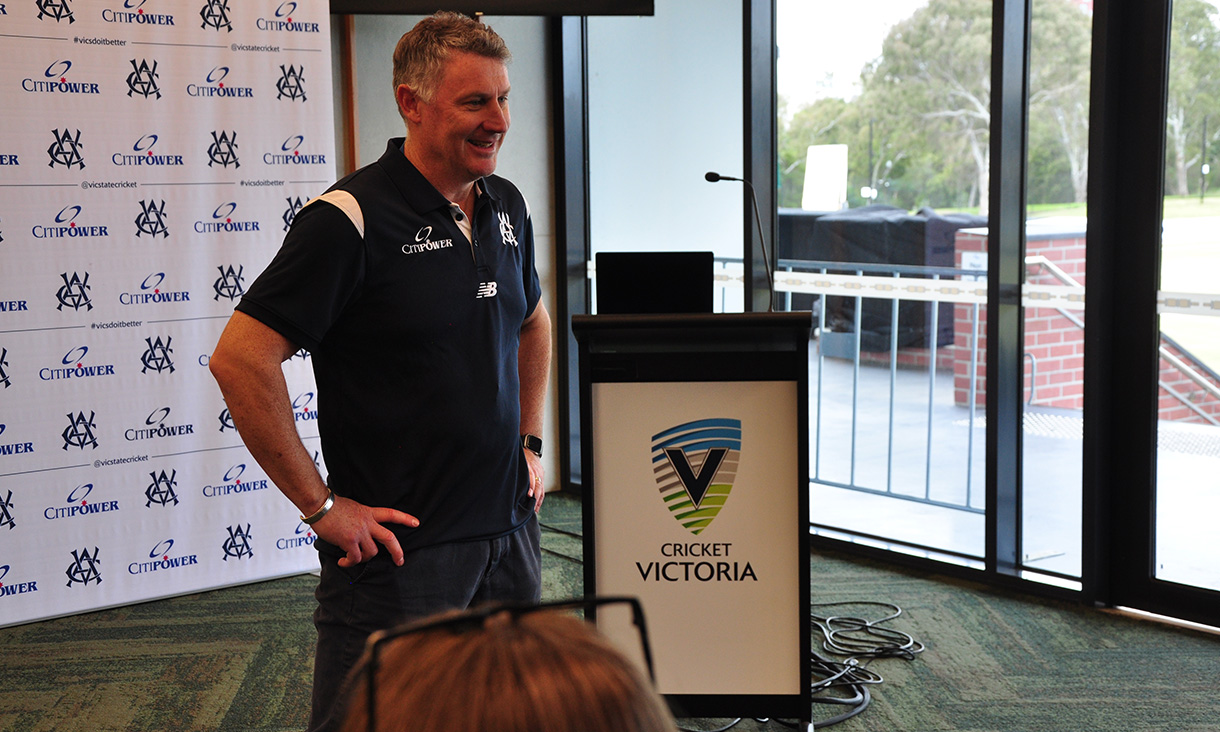Meet Stacey Hymer: student, foodie and Olympian
Food tech and nutrition student Stacey Hymer is gearing up to represent Australia at the Tokyo Olympics for Taekwondo.
Black Rhinos community sport program charges on
New research reveals the community basketball program aimed at supporting young African-Australians is improving community engagement and academic performance.
Launching the new Melbourne Cricket Education Academy (MCEA)
Cricket Victoria, in partnership with RMIT’s College of Vocational Education, is proud to launch the new Melbourne Cricket Education Academy (MCEA).
Was that a goal or behind? RMIT students put their skills to the test in the AFL Match Review Centre
Screen and Media students at RMIT’s College of Vocational Education are being given the opportunity to train in the AFL Review Centre (ARC), as a part of their Work Integrated Learning (WIL) placements at Marvel Stadium.




